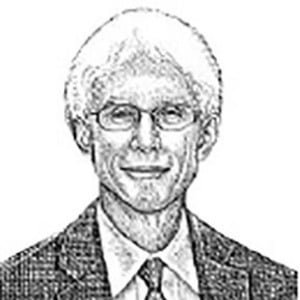[경제노트] (영어로 배우는 국제경제) 'Weighing the...'
-
기사 스크랩
-
공유
-
댓글
-
클린뷰
-
프린트
[ Weighing the Wealth Effect ]
Fed Chairman Alan Greenspan has often worried that the increase in
Americans" stock market wealth could cause them to overspend.
In a June 17 speech to the Congressional Joint Economic Committee,
he said that recent capital gains will support outsized increases in
consumption for many months into the future.
But a new study by two staffers of the Federal Reserve Bank of New York
says there"s no reliable correlation between stock market gains and
future consumer spending.
Economist Sydney Ludvigson and Senior Vice President Charles Steindel
conclude that on average, a lasting $1 increase in stock wealth leads to
a 3 cents to 4 cents increase in annual consumption.
But they say that this average is "a very shaky reed to lean on,
"because at various times the wealth effect has swung from 2 cents to
almost 11 cents.
Ludvigson and Steindel also say it"s impossible to predict how quickly
the wealth effect however big it is will kick in.
It can take years for consumer spending to reach a permanently higher
level.
"Forecasts of future consumption growth are not typically improved
by taking changes in existing wealth into account," they conclude.
Greenspan"s ruminations on the stock market seem to assume a more
reliable correlation between wealth gains and spending.
The New York Fed authors declined to discuss the policy implications
of their paper.
Says Steindel : "This is a statistical paper. We"re not making a
forecast of what"s going to happen in the current environment."
= BusinessWeek 8월 16일자 Economic Trends
-----------------------------------------------------------------------
(( 요약 ))
앨런 그린스펀 미국 연방준비제도이사회(FRB) 의장은 미 증시의 호황이
소비자들의 지나친 낭비를 유발할 수 있다고 종종 경고해 왔다.
단적인 예로 지난 7월 17일 의회 합동경제위원회 연설에서 그린스펀은
최근의 주가상승이 향후 엄청난 소비 증가를 유발할 것이라고 강조했다.
그러나 뉴욕 연방준비은행에 근무하는 2명의 이코노미스트는 주가 상승에
따른 이익 실현과 향후 소비자 지출간에는 신빙성 있는 상관 관계가 없다는
결론을 내린 조사보고서를 최근 발표했다.
시드니 루드빅슨 연구위원과 찰스 스타인델 수석 부총재는 증시에서 1달러를
벌 경우 소비자들의 지출은 연 평균 3~4센트 증가하는데 불과하다고 지적하고
있다.
그들은 부의 효과가 변동성이 크기 때문에 이러한 평균치도 사실은 정확하지
않다고 설명했다.
또 두 번문가는 증시에서 얻은 수익이 얼마나 신속히 혹은 얼마나 많이 실물
경제에 영향을 미치는지를 예측한다는 것은 불가능하다고 강조하고, 소비자
지출이 영구히 높은 수준에 도달하려면 수년이 걸릴 수도 있다고 지적했다.
이는 증시에서 부의 획득과 소비 사이에 확실한 상관관계가 있다고 보는
그린스펀 의장의 생각과 상반되는 견해지만, 이 보고서의 저자들은 "이것은
통계보고서일 뿐이다"며 자신들의 보고서에 관해 토론해 보자는 제의를
거부했다.
-----------------------------------------------------------------------
(( 용어설명 ))
<> 부의 효과
투자수익 등의 결과로 발생한 가계의 부는 일정한 비율로 상품 등에 대한
소비를 추가로 유발, 실물경제에 긍정적인 효과를 끼친다는 이론.
미국경제가 증시활황과 맞물려 장기호황을 지속하면서 이 이론이 빠르게
확산되고 있다.
미국인들이 지출하고 있는 소비의 3분의 1은 주가상승에 따른 투자자들의
부의 효과에 힘입은 것이며 미국 국내총생산(GDP)의 3분의 2가 소비에 기반을
두고 있다는 통계도 있다.
< 뉴욕=이학영 특파원 hyrhee@earthlink.net >
( 한 국 경 제 신 문 1999년 8월 12일자 ).
Fed Chairman Alan Greenspan has often worried that the increase in
Americans" stock market wealth could cause them to overspend.
In a June 17 speech to the Congressional Joint Economic Committee,
he said that recent capital gains will support outsized increases in
consumption for many months into the future.
But a new study by two staffers of the Federal Reserve Bank of New York
says there"s no reliable correlation between stock market gains and
future consumer spending.
Economist Sydney Ludvigson and Senior Vice President Charles Steindel
conclude that on average, a lasting $1 increase in stock wealth leads to
a 3 cents to 4 cents increase in annual consumption.
But they say that this average is "a very shaky reed to lean on,
"because at various times the wealth effect has swung from 2 cents to
almost 11 cents.
Ludvigson and Steindel also say it"s impossible to predict how quickly
the wealth effect however big it is will kick in.
It can take years for consumer spending to reach a permanently higher
level.
"Forecasts of future consumption growth are not typically improved
by taking changes in existing wealth into account," they conclude.
Greenspan"s ruminations on the stock market seem to assume a more
reliable correlation between wealth gains and spending.
The New York Fed authors declined to discuss the policy implications
of their paper.
Says Steindel : "This is a statistical paper. We"re not making a
forecast of what"s going to happen in the current environment."
= BusinessWeek 8월 16일자 Economic Trends
-----------------------------------------------------------------------
(( 요약 ))
앨런 그린스펀 미국 연방준비제도이사회(FRB) 의장은 미 증시의 호황이
소비자들의 지나친 낭비를 유발할 수 있다고 종종 경고해 왔다.
단적인 예로 지난 7월 17일 의회 합동경제위원회 연설에서 그린스펀은
최근의 주가상승이 향후 엄청난 소비 증가를 유발할 것이라고 강조했다.
그러나 뉴욕 연방준비은행에 근무하는 2명의 이코노미스트는 주가 상승에
따른 이익 실현과 향후 소비자 지출간에는 신빙성 있는 상관 관계가 없다는
결론을 내린 조사보고서를 최근 발표했다.
시드니 루드빅슨 연구위원과 찰스 스타인델 수석 부총재는 증시에서 1달러를
벌 경우 소비자들의 지출은 연 평균 3~4센트 증가하는데 불과하다고 지적하고
있다.
그들은 부의 효과가 변동성이 크기 때문에 이러한 평균치도 사실은 정확하지
않다고 설명했다.
또 두 번문가는 증시에서 얻은 수익이 얼마나 신속히 혹은 얼마나 많이 실물
경제에 영향을 미치는지를 예측한다는 것은 불가능하다고 강조하고, 소비자
지출이 영구히 높은 수준에 도달하려면 수년이 걸릴 수도 있다고 지적했다.
이는 증시에서 부의 획득과 소비 사이에 확실한 상관관계가 있다고 보는
그린스펀 의장의 생각과 상반되는 견해지만, 이 보고서의 저자들은 "이것은
통계보고서일 뿐이다"며 자신들의 보고서에 관해 토론해 보자는 제의를
거부했다.
-----------------------------------------------------------------------
(( 용어설명 ))
<> 부의 효과
투자수익 등의 결과로 발생한 가계의 부는 일정한 비율로 상품 등에 대한
소비를 추가로 유발, 실물경제에 긍정적인 효과를 끼친다는 이론.
미국경제가 증시활황과 맞물려 장기호황을 지속하면서 이 이론이 빠르게
확산되고 있다.
미국인들이 지출하고 있는 소비의 3분의 1은 주가상승에 따른 투자자들의
부의 효과에 힘입은 것이며 미국 국내총생산(GDP)의 3분의 2가 소비에 기반을
두고 있다는 통계도 있다.
< 뉴욕=이학영 특파원 hyrhee@earthlink.net >
( 한 국 경 제 신 문 1999년 8월 12일자 ).
![[토요칼럼] 지도자의 '분노'와 '판단 착오'](https://img.hankyung.com/photo/202412/07.14342445.3.jpg)
